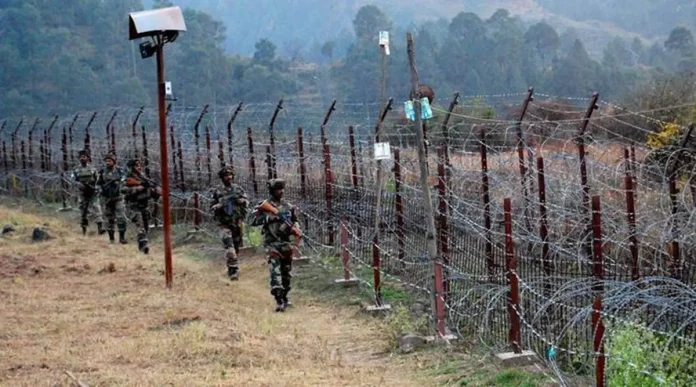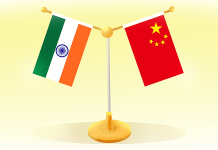The long-standing tensions between India and Pakistan have once again escalated as reports emerge of a ceasefire violation along the Line of Control (LoC). The recent incident has reignited concerns over border security and regional stability. This article delves into the details of the ceasefire violation, its impact on diplomatic relations, and the broader implications for both nations.
Understanding the Ceasefire Agreement
India and Pakistan have had a history of conflict, particularly over Jammu and Kashmir. To prevent further escalations, the two nations signed a ceasefire agreement in 2003, committing to maintaining peace along the LoC. While the agreement initially led to a decline in cross-border hostilities, violations have continued sporadically over the years. A renewed commitment to the ceasefire was made in February 2021, yet recent incidents indicate persistent challenges in upholding it.
Recent Ceasefire Violation: What Happened?
According to reports, the latest ceasefire violation occurred when Pakistani troops allegedly opened unprovoked fire at Indian positions along the LoC. The Indian Army responded in kind, leading to heightened tensions in the region. No casualties have been officially reported, but the exchange of gunfire has caused panic among residents in border villages. The incident underscores the fragile nature of the ceasefire and the ongoing security challenges faced by both sides.
Impact on Civilians and Border Security
Frequent ceasefire violations pose a significant threat to civilians living near the LoC. Border residents often find themselves caught in the crossfire, leading to displacement, injuries, and loss of life. The uncertainty surrounding the ceasefire also affects their economic stability, as many depend on agriculture and cross-border trade. Moreover, security forces on both sides remain on high alert, further intensifying the already volatile situation.
Diplomatic Repercussions and Political Reactions
The recent violation is likely to strain diplomatic relations between India and Pakistan. The Indian government has condemned the act, calling for Pakistan to adhere to the ceasefire agreement. On the other hand, Pakistan has denied any wrongdoing, attributing the gunfire to defensive measures. This blame game continues to hamper efforts for peace talks and confidence-building measures. Additionally, global powers, including the United Nations, may intervene by urging both nations to exercise restraint and engage in dialogue.
Broader Geopolitical Implications
The ceasefire violation comes at a time when South Asia is already witnessing geopolitical shifts. India’s strengthening ties with global powers, particularly the United States, and Pakistan’s alliance with China add layers of complexity to the situation. The incident may impact ongoing discussions on counterterrorism efforts, trade, and regional cooperation. Furthermore, tensions along the LoC could affect India’s internal security policies and military strategies, potentially leading to increased defense spending and strategic recalibrations.
The Role of International Mediation
In past conflicts, international organizations and foreign nations have played a crucial role in mediating peace efforts between India and Pakistan. The United Nations has repeatedly called for de-escalation and adherence to bilateral agreements. However, both India and Pakistan have historically resisted external intervention, preferring direct bilateral negotiations. With the latest ceasefire violation, diplomatic channels may once again come into play to de-escalate tensions and prevent further incidents.
Way Forward: De-escalation and Peace Initiatives
Despite recurring ceasefire violations, the path to long-term peace is still viable if both nations commit to constructive dialogue. Strengthening communication mechanisms between military leadership on both sides can prevent misunderstandings and unintended escalations. Confidence-building measures, such as reviving trade routes, easing travel restrictions, and engaging in cultural exchanges, can foster a more stable relationship. Additionally, reinforcing diplomatic efforts through regional forums like the South Asian Association for Regional Cooperation (SAARC) could promote a broader dialogue on conflict resolution.
The latest ceasefire violation along the LoC serves as a stark reminder of the fragile peace between India and Pakistan. While diplomatic and military tensions remain high, efforts must be made to prevent further escalations. A combination of diplomatic engagement, military restraint, and regional cooperation is essential to ensure lasting stability. As both nations navigate this challenging situation, the hope for a peaceful resolution remains crucial to safeguarding the interests of civilians and maintaining regional security.
By – Jyothi




